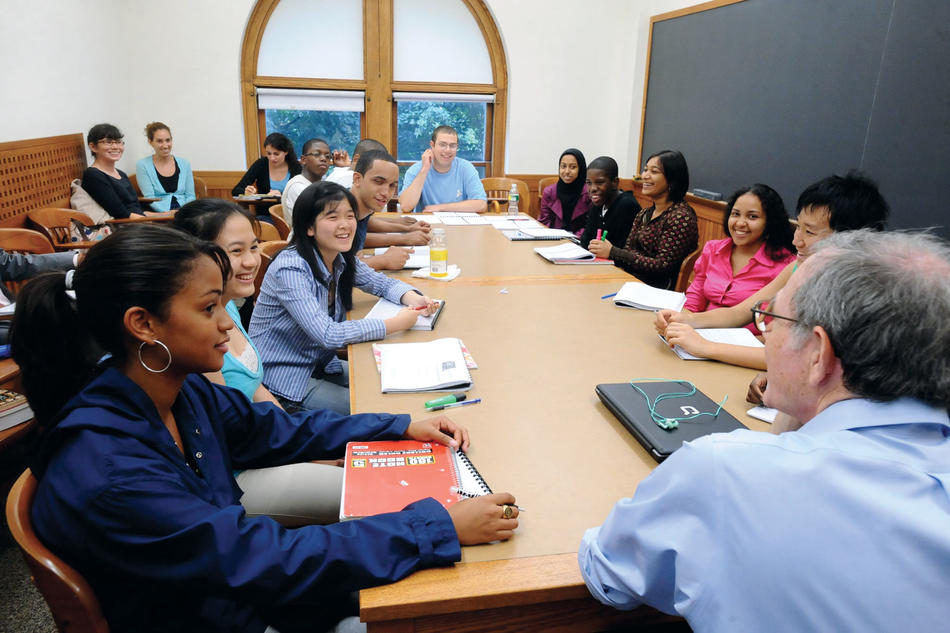Shaun Abreu, a senior at the High School for Media and Communications in Manhattan, never thought of himself as Ivy League material. His father is a maintenance worker, his mother a clerk in a food market. But after spending three weeks studying at Columbia this summer, Abreu, 18, is planning to apply to the College.
“I know I’m not getting the best education at my high school, but I’m not going to let that be an obstacle,” he says. “I realize now what I’m capable of doing.”
For three weeks in July, Abreu and 13 other gifted teens from underserved communities in New York City spent their days in Columbia classrooms, being taught by Columbia professors. Their evenings were filled with reading and writing assignments. Some nights, Abreu thought he was in over his head. “I won’t lie,” he says. “It was really demanding.” But he survived. And he was so proud that he e-mailed the syllabus to his high-school history teacher and to most of his friends.
Abreu studied at Columbia this summer as part of a program launched recently with a three-year, $240,000 grant from the New York City–based Teagle Foundation. The program is a collaborative effort between the American studies program and the University’s Double Discovery Center (DDC), which has provided academic support and counseling to college-bound, low-income teens since 1965. This new DDC offering is the first focused on a specific academic subject area. Participants, during their three weeks on campus in July, slept in Columbia dorms and spent nearly every waking hour thinking about the roots of the American political system.
American studies scholar Roosevelt Montás ’95CC, ’04GSAS, an associate dean and director of the Center for the Core Curriculum, taught morning classes, which focused initially on Plato and Aristotle, moved on to Hobbes, Locke, Rousseau, and Jefferson, and then finished up with Lincoln, Douglass, and Dewey.
“It’s pretty rigorous,” Montás said, “and I don’t teach the material any differently from how I teach undergraduates.”
The program continues this fall to prepare the students to take the SATs and to write college application essays. Next spring, the high schoolers will participate in a Columbia research project to study various forms of civic engagement in area neighborhoods. But the goals of the program reach beyond helping a handful of students each year. The creators of the program want it to serve as a model for other programs in the city and nation.
“These are students who aspire to be active leaders in their community,” said Casey Blake, a professor of American history and the founding director of the American studies program. “By being exposed to a long tradition of reflecting on the meaning of citizenship and freedom, students will be able to think creatively about long-standing problems.”
Eric Foner ’63CC, ’69GSAS, Columbia’s DeWitt Clinton Professor of History, is among the prominent faculty who have volunteered their time to the Teagle program. He delivered a guest lecture this summer, bringing to life complex historical issues with gripping analogies. He compared the economic value of slaves in early America to “all the banks, factories, and railroads put together,” and described the cotton they picked as akin to oil produced today in Saudi Arabia. After the lecture, students crowded around him, asking him to sign their books.
“This has been the most exciting experience of my life,” says Leo Ming Xi Jiang, 18, who attends Manhattan International High School. He moved to New York City from Shanghai four years ago and says he slacked off in school, until recently. “This has transformed me,” he says.



